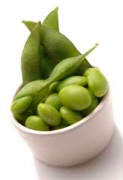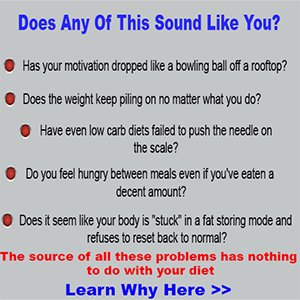What Is Soy Lecithin And Is It Ok To Eat?
Soy lecithin is an emulsifying compound used in many products, from foods to topical skin care products, to prescription drugs. It’s extracted from soy beans during the processing of soybean oil.

Lecithin is the basic product, and in this case it’s derived from soy. Traditionally, lecithin comes from eggs – its name originates from the Greek word ‘lekithos’ which means egg yolk.
The major role of lecithin is to prevent oil and water (or hydrophobic and hydrophilic compounds) from separating – this is the basic effect of emulsification.
Lecithin is also used in many food products to reduce viscosity, control sugar crystallization and flow properties, helps ingredients mix together more evenly, and improves shelf life. For example, chocolate would not have its smooth rich taste if it weren’t for lecithin.
Basically, many foods that we eat contain lecithin, whether it be from using egg yolk lecithin in baking, or soy lecithin in pre-made foods or supplements. Regardless of its food application, lecithin is generally used in very small amounts, with the result that it is usually present in finished foods at levels rarely exceeding 1% by weight of the final food product.
Safety?
One of the biggest concerns with the use of soy lecithin in foods is that it comes from soy, which some people believe is a harmful and unhealthy food, specifically soy protein. However, during the manufacture of lecithin derived from soy, most (but not all) of the soy protein is removed. And the amount of protein left in soy lecithin is less than 0.3% of the total weight.
For persons with minor soy sensitivities, soy lecithin found in the miniscule amounts in most food products is not a problem. But, for people with a severe soy allergy, food containing any soy, even soy lecithin, should be avoided. There are case studies showing severe allergic reactions in individuals with a true soy sensitivity when they consume foods with soy lecithin.
Overall, unless you have a severe soy allergy, there is no reason to avoid soy lecithin in the miniscule amounts it may be found in some foods.
News: How People Just Like You Are Achieving Extraordinary Results >>
References
Menopause. 2007 Jan-Feb;14(1):141-9. Effect of soy isoflavone protein and soy lecithin on endothelial function in healthy women. Evans M, et al.
J Cutan Med Surg. 2008 Jan-Feb;12(1):27-30. Type I hypersensitivity in an asthmatic child allergic to peanuts: was soy lecithin to Béliveau S, et al.
About Jayson Hunter & Jaylab Pro

Jaylab Pro was founded by Registered Dietitian Jayson Hunter. Jayson has been recognized as one of America's foremost weight loss experts by America's Premier Experts™. He has also been featured in USA Today for this accomplishment. Jayson is also a best-selling author having co-authored multiple books in health & fitness and business growth. Jayson and the Jaylab Pro team are proud to create content that helps improve the lives of millions of people around the world. We hope you enjoy it just as much as others have.
 If you order a JayLabPro SmartShip product or any Combo Package, we will automatically ship you a new supply of the product or products you have ordered every month, starting 30 days after your initial order is shipped, and continuing until you cancel. The credit card you are using today will be billed the lowest available price for those product or products when your order is shipped, but shipping will be FREE. You may log into your customer account or call our customer service department toll-free at 1-888-9GETPRO (1-888-943-8776) between the hours of 8am – 9pm EST Mon-Fri to cancel future shipments, customize the timing of your shipments, or change the credit card used for billing.
If you order a JayLabPro SmartShip product or any Combo Package, we will automatically ship you a new supply of the product or products you have ordered every month, starting 30 days after your initial order is shipped, and continuing until you cancel. The credit card you are using today will be billed the lowest available price for those product or products when your order is shipped, but shipping will be FREE. You may log into your customer account or call our customer service department toll-free at 1-888-9GETPRO (1-888-943-8776) between the hours of 8am – 9pm EST Mon-Fri to cancel future shipments, customize the timing of your shipments, or change the credit card used for billing.










